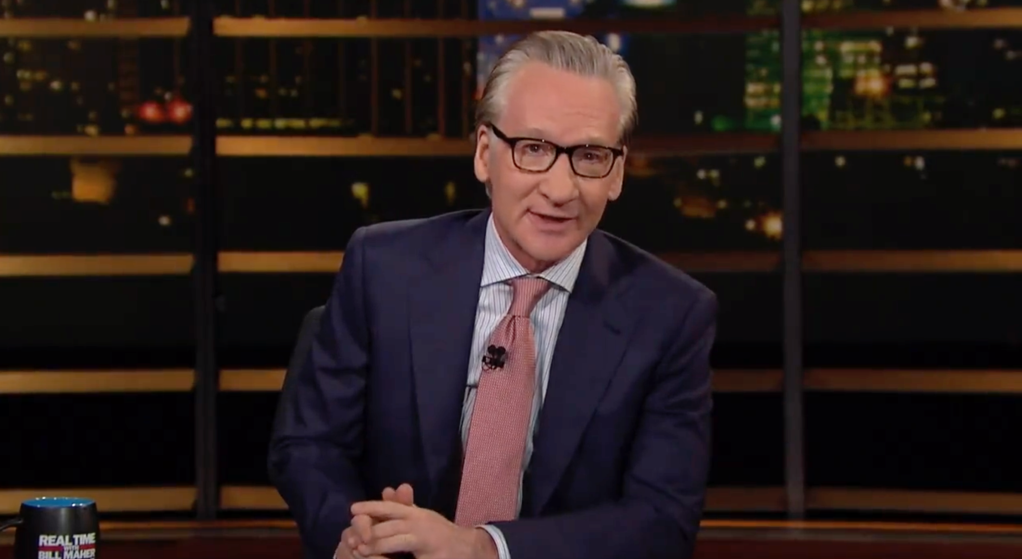Buoyed by a two-year deal at HBO, a weekly CNN presence and a new book, Bill Maher now has decided to describe himself as a “centrist.” Is it a claim in vain?
Having watched his show for years and done several shows with him, I suspect he’s instinctively too “incorrect” to qualify for “moderation.” Strategically, some feel he shouldn’t even try.
The audience for stand-ups and for TV in general is changing noticeably, to some performers’ discomfort. At their annual upfronts, TV executives two weeks ago no longer were obsessed by that premium 18-49 age group, acknowledging that their remaining audience is becoming geriatric – 66 for the ABC network, for example, and 69 for Fox News.
Stand-up comics report their crowds at arenas or clubs are aging as well, and they are adjusting their routines accordingly. Even the jokes seem less coital, more socially consensual.
So will the more mature audiences be as receptive to “centrist” humor? Or can comics even deliver it?
A curious stratum of humanity, stand-up comics are by nature restless and raunchy and rarely can be counted on as “friends.” Don Rickles once confided to me that he was amazed that producers actually paid him so well to insult people. “Insults come naturally to me,” he said, adding: “By the way, I find you despicable.”
RELATED: Bill Maher Says ‘Quiet On Set’ Made Nickelodeon Seem Like Neverland Ranch
Celebrity stand-ups like Joey Bishop and Garry Shandling were famously nasty to “civilians” who tried to introduce themselves. So were members of the Rat Pack, like Frank Sinatra or Peter Lawford, who cultivated an exalted style of celebrityhood.
Johnny Carson admitted he had a “hostile attitude” even at intimate dinner parties because “I always felt people expected me to be funny.” During dinners together, he was steadfastly unsmiling.
Stand-up comics not only are stingy with jokes, but if someone else is witty, they accuse them of stealing their material.
Maher is an exception in that he actually tries to be amicable in personal conversation – unless you disagree with him. As a stand-up, he compulsively has to prove he’s sharper than you. After all, the camera is rolling, even when it isn’t.
When Maher visited Greg Gutfeld on his Fox News show recently, viewers could intuit the competitive tension behind the surface civility. A rematch is doubtful.
Maher’s new book, What This Comedian Said will Shock You, is a collection of editorials from the “New Rules” sector of Real Time, duly edited and revised. Its recurring theme is a call for unity. “We have to see each other not as mortal enemies but merely as roommates from hell,” he argues.
RELATED: Bill Maher Gets Word On The Potential Next Pandemic From ‘Fast Food Nation’ Author Eric Schlosser
As a spokesman for moderation, to be sure, Maher is the same guy who was sued by Donald Trump for suggesting that he was the progeny of an orangutan. Or who was canceled off ABC’s Politically Incorrect in 2002 after nine years ostensibly because his wisecracks offended some network advertisers.
But today Maher says, “Why can’t everyone live in my world – in the middle?”
Maher, approaching 70, insists that Joe Biden, 81, is too old to win. The principal reason to watch the presidential debates, he says, is to learn which geriatric candidate will demand the most frequent “pee breaks.”
So will Maher’s “centrism” work?
“A new centrism may actually be on the rise in Washington,” argues David Leonhardt in a New York Times column. “Neoliberalism has failed to deliver.” Its successor might be “a mushy moderation” from the middle, Leonhardt writes.
I suspect neither Bill Maher nor his audience would be content with “mushy.”
